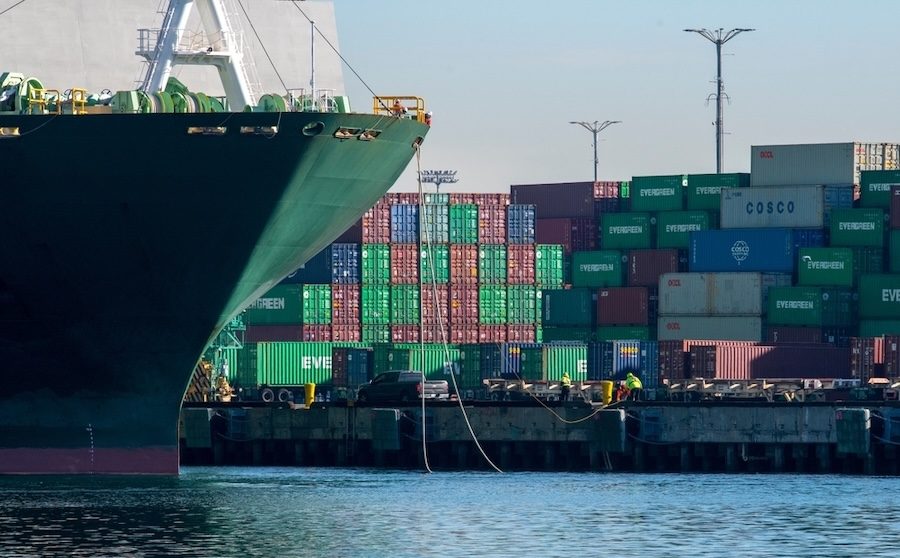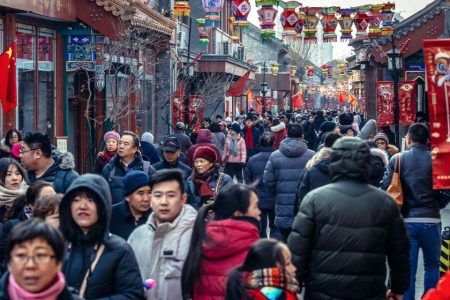Beijing will impose a blanket levy of 34 percent on all US imports from 10 April, a day after US President Donald Trump’s so-called “reciprocal tariffs” – a cumulative 54 percent for China – come into effect, multiple media outlets have reported. It will also start restricting the export of certain rare earth elements to all destinations, not just the US, with potentially large repercussions for tech, energy, defence and telecommunications industries, among others, around the world.
Thirty-four percent is the additional tariff Trump placed on Chinese imports on Wednesday, on top of the 20 percent he has already applied since taking office in January. While the US’ new tariffs exclude certain products, such as semiconductors and pharmaceuticals, China’s have no exemptions.
However, the US’ will still hit far more goods than China’s. According to the New York Times, China imported US$147.8 billion worth of American goods last year, and exported US$426.9 billion worth of goods to the US.
[See more: Trump imposes new 34 percent tariffs on China, declaring a ‘national emergency’]
This large trade deficit is one reason Trump has given for his reciprocal tariffs – which were imposed, at varying rates, on its international trade partners. Tiny Lesotho and Saint Pierre and Miquelon, a French territory, received the highest rate: 50 percent. A baseline tariff rate of 10 percent will be imposed on goods imported from its other trade partners from 5 April.
As part of its retaliation to Wednesday’s news, Beijing placed seven categories of medium and heavy rare earths on an export control list. These are used in a wide range of products, from smartphones to electric car batteries, Reuters reported. The United States imports most of its critical minerals, mainly from China.
China has also added 16 US entities to its export control list, citing national security concerns. The move bans the export of dual-use items (goods, software and technology that can be used for both civilian and military purposes) to those entities.
Eleven US entities were added to China’s “unreliable entity” list for engaging in “so-called military and technical cooperation with Taiwan,” according to a statement from the commerce ministry that was cited by the BBC. Chinese suppliers are prohibited from selling components to anyone on this list.
A statement from the Ministry of Commerce denounced the US’ latest moves as inconsistent with international trade rules, undermining China’s legitimate rights and interests, and “typical unilateral bullying practice”, according to state media.
Jude Blanchette, director of the RAND China Research Center, told the New York Times that China’s forceful response was “inevitable” due to the sheer magnitude of Trump’s latest tariff hike.
“Beijing can no longer maintain the fiction that diplomatic engagement with the Trump administration will prevent a full-scale trade war,” he said. “Despite White House warnings against retaliation, the total tariffs imposed on China are now so substantial that Beijing has little reason to exercise restraint.”
Wang Dong, executive director of the Institute for Global Cooperation and Understanding at Peking University, told the Times that China was in a better position to “win this round of trade frictions” than during Trump’s first term.
However, Andrew Gilholm, head of China analysis at consultancy Control Risks, told the Financial Times that China would not be able to fully match the magnitude of US tariffs without “major self-inflicted damage” given the trade imbalance between the two countries and the extent of tariffs already in place.
The full list of reciprocal tariff recipients, published by CBS News, did not include Macao or Hong Kong – which are separate trade jurisdictions to mainland China under the ‘One Country, Two Systems’ policy. This could mean exports from the two SARs face the US’ baseline rate 10 percent, though Macao News was unable to confirm this on Friday. Taiwan, meanwhile, was slapped with a new rate of 32 percent.
Of the Portuguese-speaking countries, Angola received a 32 percent reciprocal tariff and Equatorial Guinea will get one of 13 percent. Exports to the US from Portugal, as part of the European Union, will be taxed at 20 percent.






